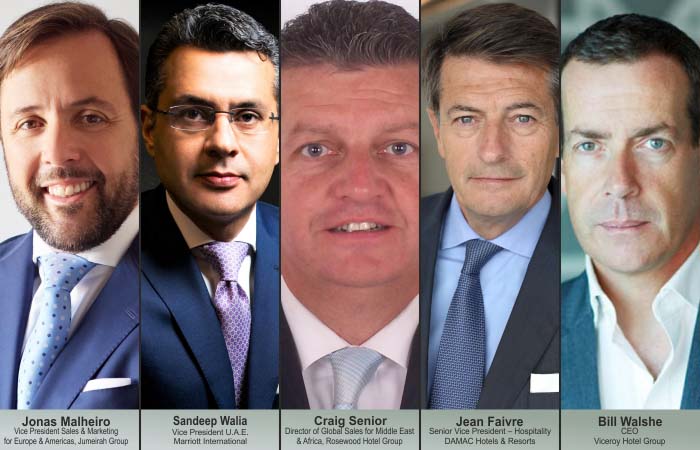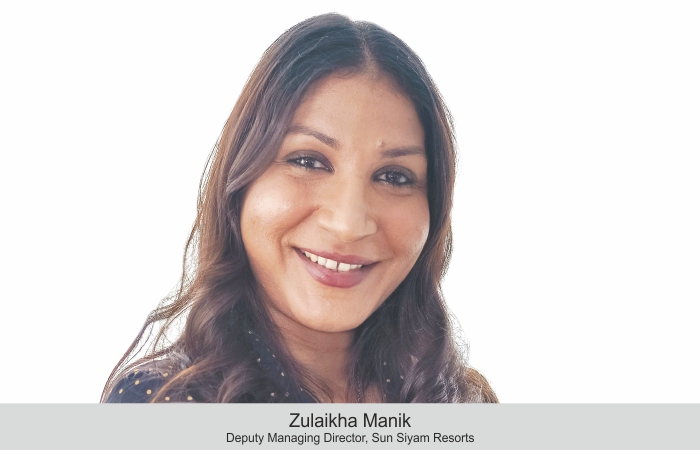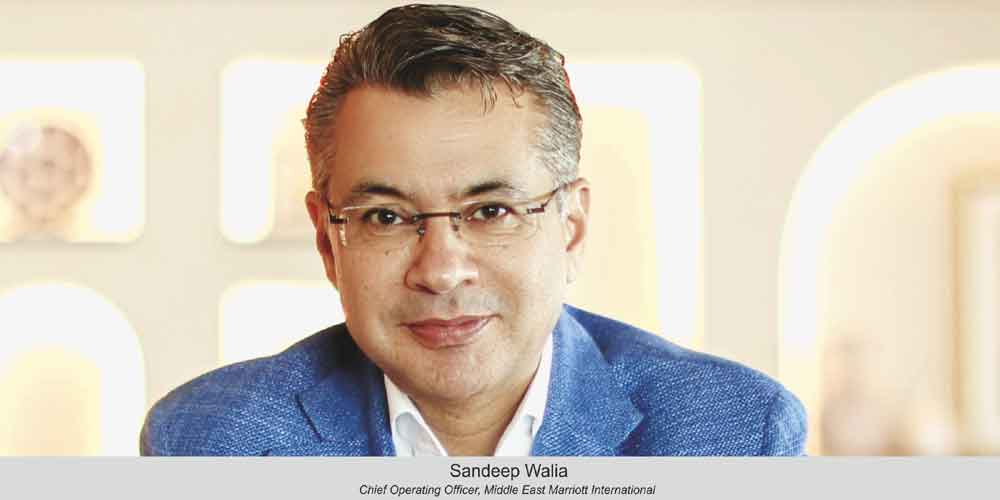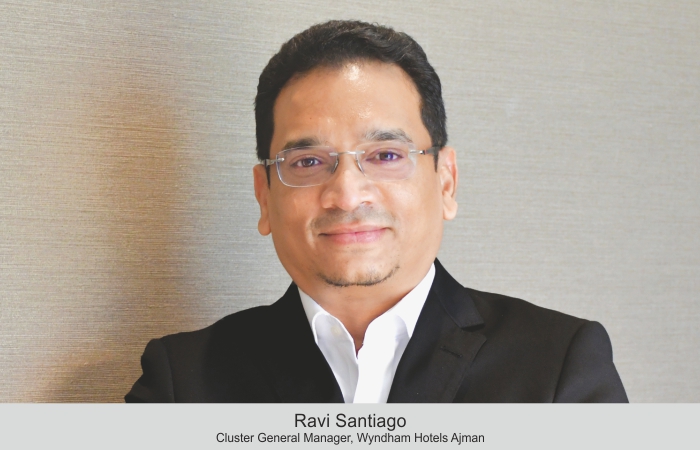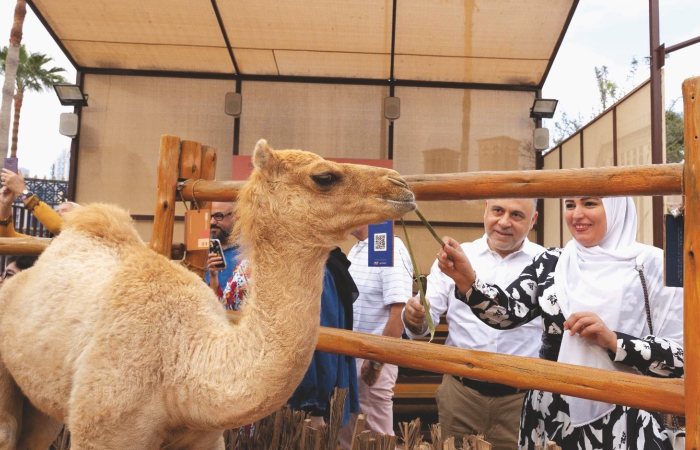Senior executives from Viceroy, Jumeirah, Rosewood, Marriott International, and DAMAC highlighted the measures their companies are taking to ensure the safety of guests while continuing to provide superior guest experiences, at a webinar as part of its ‘Back to Business’ series.
In their opening remarks, the five panellists provided Business Council members and partners with important updates relating to key properties operating in the U.A.E. and the anticipated reopening of additional properties. Future operation plans in a post COVID-19 environment, including for recently opened properties, such as the Viceroy Washington D.C., were also discussed. The speakers underlined how they remain committed to delivering stellar customer service that has differentiated them from their peers. Hosted by the U.S. U.A.E. Business Council as part of its ‘Back to Business’ series moderated by Danny Sebright, President – U.S.- U.A.E. Business Council.
Jonas Malheiro, Vice President Sales & Marketing for Europe & Americas, Jumeirah Group
Malheiro stated that Jumeirah’s roots and DNA are embedded in the U.A.E. The signing of the Abraham Accord is a ‘remarkable’ development in the region. Jumeirah has been working to gain consumer confidence in returning to hotels. Its strategy has three pillars. The first pillar is – partnering with a certified health & safety lab that can help guests stay safe at Jumeirah. The Jumeirah Al Naseem hotel was the first to get the ‘stay safe’ seal. They now have seven properties with this stamp and others are on their way. The second pillar focuses on food and beverage industries as people still want to have these experiences. They created two pop-up restaurants, French Riviera and Sol at Burj Al Arab. These have seen huge demand with the local U.A.E. community. The third pillar is, revamping the value proposition. There is a huge demand from a niche market of wanting to have complete privacy in hotels. Keeping this in mind, they have upgraded and enhanced in-room amenities.
Sandeep Walia, Vice President U.A.E., Marriott International
Walia feels blessed to be in the U.A.E. – one of the safest and cleanest countries. He stated that the U.A.E. is doing an excellent job in safeguarding the people living there and the biggest fact for him has been the speed of the response of the country, which has been more successful at curtailing the spread than in other countries. He added that Marriott has been taking a lot of initiatives and has opened 80% of their hotels in the U.A.E. Business comprises of four pillars – residents, staycationers, regional travellers and international travelers. Residential-based properties are a bit of a hedge in the group of hotels. These residential units never closed and continue to be on high occupancy, in fact they even saw an increase in occupancy. As for staycations, people didn’t want to travel far but beach resorts got a lot of business as did desert properties. Food and beverage operations are important too – 40% of revenue comes from F&B, they still have seen some business here. Moving forward, they expect regional travel will start first, then international travel. In this regard, Oman will open up soon and Saudi has partly opened up. The ‘young at heart’ rather than just the young in age have been the first to be back in hotels. Some of the brands that cater to these populations (like the W) have seen more demand.
Craig Senior Director of Global Sales for Middle East & Africa, Rosewood Hotel Group
Senior reiterated their ‘Commitment to Care’ policy has been introduced globally and this policy is guided by the WHO and local health authorities. In terms of Abu Dhabi, they have created a wellness programme to entice visitors back to the retail outlet/leisure amenities of Al Maryah Island as well as the Rosewood property. Replying to a question on what differentiates Rosewood Abu Dhabi from other Abu Dhabi hotels, Senior said that during this pandemic the property has remained open. This is partly because there is a residential component as well as the hotel. Al Maryah is an up and coming location in Abu Dhabi, just minutes away from major attractions including the Louvre Museum and Saadiyat Island. When the property opened, Rosewood had the ‘sense of place’ angle – Rosewood is known for bringing local culture to all properties globally. Rosewood Abu Dhabi has a Sunday to Thursday business component and on the weekend it becomes very much a staycation option from a leisure aspect for visitors from both Dubai and Abu Dhabi.
Jean Faivre, Senior Vice President – Hospitality, DAMAC Hotels & Resorts
Faivre stated that DAMAC has 1,300 units in Dubai. Last year, they opened the Paramount Hotel which consists of 1,200 residential units attached to it. Unfortunately, COVID-19 hit right after the ramp up of the hotel, however the hotel remained open given its business model of offering both residential and hotel properties. In the past few months, they have seen a strong influx of serviced apartment requests and occupancy in this business area. The Maison brand has clawed back since the start of the pandemic. However, it is not at the same rate but at 80% occupancy, thanks to local business. On the Paramount Hotel side, occupancy has not recovered, though they are seeing small signs of recovery. Speed to market is very important and they have taken up marketing activities to maintain some level of acceptable occupancy. They have been applying all rules and safety measures and trying to make customers feel as comfortable as possible Responding to a query on whether they are actively scouting for additional hotel operators, he said, “We have signed an HMA with Rotana and are talking with many hotel operators about other opportunities. We are looking at expanding and developing our hospitality arm further. We are looking at good opportunities in the coming months with the signing of the Abraham Accord.”
Bill Walshe, CEO, Viceroy Hotel Group
Walshe stated that some properties have been hit harder than others. Hotels dependent on large business conventions have been incredibly hard hit. In other cases, drive-to markets that have open spaces – like at a resort in Snowmass – have had a decent summer. There are different stories in different locations. He added that the pandemic had an immediate impact and the role of hospitality leaders is to stabilise the situation as much as possible. This involves putting processes and protocols in place for guests to feel comfortable to return.” Walshe shared that the urban market has not been doing as well as resorts. Urban hotels are averaging a 30% occupancy. Many of these hotels have been buying this occupancy with a race to the bottom in terms of pricing. He doesn’t agree that this is the right thing to do – it should be more about courage than cost. The younger guest is a bit more courageous – sometimes this bumps up against a line in which hoteliers have to ensure that more conservative guests feel safe as well. Walshe says he has to run de-escalation training to defuse situations when guests may be refusing to wear masks – he never thought he’d have to do this.
 TravTalk Middle East Online Magazine
TravTalk Middle East Online Magazine
